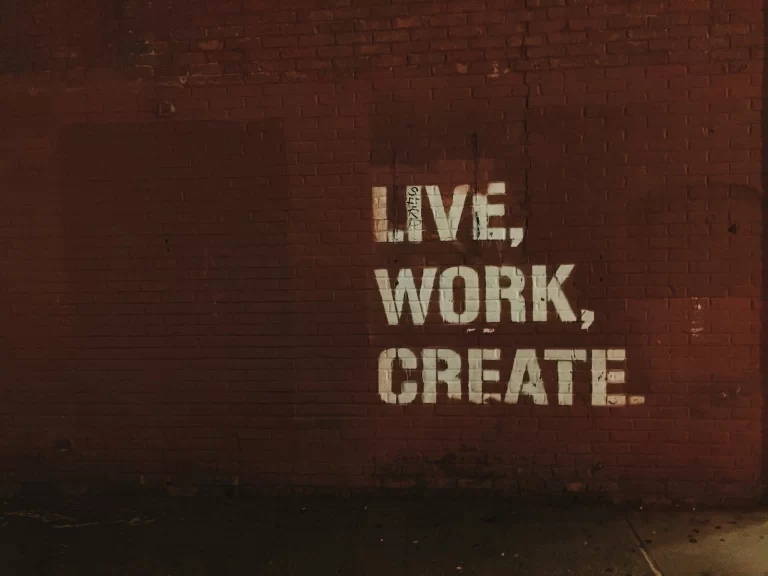15 Limiting Beliefs and How They Affect Your Daily Life
We all have these little voices in our heads that are there to provide us advice, sometimes to warn us of any dangers. Maybe, you have noticed lately that it’s there all the time and maybe even creating doubt and making you believe that this is all worthless or bullshit. Having self-limiting beliefs can affect your life in such a negative way, to the point of creating depression, anxiety and more. What is the voice in your head telling you?
The first step to personal growth is awareness, how can you improve yourself if you are not aware of what you are currently doing or thinking? You might even believe that it is not that simple and it doesn’t matter. I know how you feel.
When I started my journey for personal growth, I was very negative and judgemental, I never would have a belief that this would have worked. After a few years of therapy, anti-depression medication, sleeping pills etc. I finally met a therapist that I connected with who was telling me to do two things:
- Get ready every morning like you would go out, even if you don’t. (Came very handy in 2020)
- Anytime something negative comes to your brain, just tell yourself it’s not true
These are rather simple, but I did do them 70% of the time, and after a few months started to notice a change. I learned that the first step to being aware started a domino effect on my personal growth.
This post contains affiliate links, which means I receive a small commission to buy me coffee. I love coffee! At no extra cost to you, if you make a purchase using this link, you may allow me to buy coffee while I write! Please see my disclosure for more details.
What are limiting beliefs?
Also known as “cognitive distortion” is an assumption we make based on minimal evidence, or without considering the evidence.
Limiting beliefs occur over time, just like any other habits we have created. You have created a habit of thinking this way when certain things happen around you or to you. It’s very rarely one thing that brought you here. It’s repetition that made you stop believing there was no other way, either from hearing the same thing for a long period or experiencing the same thing over and over again.
From childhood to adulthood, we all have different experiences that make us question how to remain positive or not to be overly judgemental of ourselves and others.
This way of thinking can increase the amount of stress you feel, which will protect you for your immediate survival, but will stop you from making empowering decisions or attempting positive changes.
How will it impact your life?
- increase anxiety
- deepen depression
- difficulties in relationships
Source provided by Healthline
Why are your limiting beliefs stopping you from getting what you want?
Have you ever dreamt of saying something out loud, going out somewhere different or trying something completely out of the ordinary, but that little voice in your head made you believe that you weren’t good enough or you were just crazy? “You shouldn’t speak up, or ask for what you want.”
Your limiting beliefs may stop you from doing something amazing, you would simply say no. You may refuse a job offer, a date, a new connection or even to better yourself.
Have you tried to lose weight and just told yourself you couldn’t do that? You aren’t strong enough, you don’t know how and gave up. Or you saw something online you wanted to try and couldn’t believe this could ever be you. Comparing yourself to others and setting mental blocks. So, why try at all?
How many times have you not taken any action for yourself because of that little voice? Or have you tried to fight it and started regretting your decision afterwards?
Reasons why you should be aware of your negative thought patterns
Finding the root cause and what is going on is important. This may take years, so what now?
Simply finding out why doesn’t make you start to change. It will make you aware of your own beliefs and behaviours, bringing your thoughts from your unconscious mind to your conscious mind. Not forgetting, the way you think creates emotional patterns, you will start to notice them and you can start to change them.
- The first step to personal growth is to be aware and become conscious of your thinking patterns and behaviours.
- The second step is to slowly take daily actions to make your life better. It’s not a quick practice, it is not a 30-day diet or program.
There are a lot of ups and downs and it won’t be resolved in one day either. You can decide how you approach a situation, how you react, how your thoughts are happening and which one you want to let go of because you don’t want them. There are no miracle solutions.
Your journey is not linear, life happens and it’s impossible to control or predict what will make you revert to negative thinking patterns. But, the more aware you are, the better you know the patterns, the easier it gets for you to become more positive and be on your way to being the person you want to be. Can you avoid certain situations or people altogether if they are creating so much negativity?

Personal Growth takes time, to learn more about how to start your journey, read my other article here. Why is personal growth important to reduce stress?
Overview
| Name of Limiting Belief | Common Negative Behaviors Examples |
| All or Nothing (aka Polarized Thinking) | What’s the point of trying if I fail? |
| Overgeneralization | All men are… All women are … Everyone from culture X is… Why is this always happening to me? Nobody likes me anyway I can never do anything right |
| Mental Filtering | Not looking for another job, because of negative experience in a prior interview. |
| Disqualifying the positive | Comment: “Nice hair cut” You: “Well my friend did it, and I don’t know if I like it…” Instead of saying “thank you” |
| Mind Reading | Not asking for a raise at work, because you believe you know what your boss will say. |
| Fortune Teller | I am never going to find true love I am not going to get my dream job I will never get to do [insert here] |
| Maximization / Minimisation | Someone is not returning your call and you think they hate you or something terrible happened. |
| Emotional Reasoning | You are an average weight and everyone around you says so. You would dismiss it and tell yourself that you are the one that is right and have to lose x amount of pounds. |
| Should Statement | “I should have this” “I should be doing this vs that” |
| Labeling and Mislabeling | I am lazy I am fat I’m stupid anyway I’m depress I have anxiety |
| Personalization | “It’s my fault X happened” “They are late because of me” |
| Control Fallacies | Not letting go of other’s actions and choices |
| Fairness Fallacies | Believing everything should always be fair. |
| Fallacies of Change | Believing you can change everyone to match your values and life. |
| Always being right | Trying to one-up someone, because they view a situation another way. |
List of the top 15 limiting beliefs
Learn what limiting thinking patterns you are using, you might already be aware, but some of them might make you think deeply about certain negative behaviours you have chosen because of them.

1. All or Nothing (aka Polarized Thinking)
All or Nothing means black or white, yes or no, you are either a success or a failure, you need to be perfect or else it’s not good enough.
This way of thinking will make you not want to try, but stop you from taking any actions about anything in your life. “What’s the point of trying if I fail?” (Not what I think, only for this article, I fail all the time!) Unless you will be perfect at something, why try it at all?
Life is not just black and white, there are a lot of gray areas. It’s not because you don’t have the perfect American dream that you are failing. Your family may have other ideas for you, doesn’t mean you are failing if you don’t follow.
Taking risks and putting yourself in a situation that makes you uncomfortable is not easy. I can promise that the more you do it the easier it gets. Our mistakes make us, and the many failures of our lives create our journey. The decisions we regret making tell us how to be better next time.
The end of the journey is only one step, every step you will take in the middle will be the life you will decide to live.
2. Overgeneralization
One kind of overgeneralization is the idea of generalizing over a massive group of people, cultures etc. This might include, all men, women or other cultures, religions etc. This type of belief will make you think that everyone is the same so there is no point in trying. Which you won’t.
Imagine if you think certain groups of people negatively are all the same. Would you ever want to take any steps to learn more or even join that group? Which creates a very close way to live your life, separating you from entire communities. Are you as open as you can be or your negative beliefs are blocking you from even listening to different ideas?
Everyone has their journey, experiences and views of the world. Some may be similar, but are they all the same? Should that even stop you from being open?
Listening to someone that you don’t agree with doesn’t make you less of a person. It shows that you are open to new ideas and challenging your thoughts and ideals.
Example of Overgeneralization
- All men are…
- All women are …
- Everyone from culture X is…
Another example of overgeneralization is more internal. Have you ever been attempting any situations and just overgeneralized your own life and prior experiences?
Examples of internal overgeneralization
- Why is this always happening to me?
- Nobody likes me anyway
- I can never do anything right
3. Mental Filtering
Mental filtering is the idea that you will only filter in your mind the event you want to see. In the case of negative thinking patterns, you would only focus on the negative experiences even when what happened was for 10 minutes in your day.
When certain events happen a few times, you start to remember everything negative from prior moments and ignore anything positive that is happening in the past or even at the time you are experiencing it.
Have you ever been on an amazing trip, but only talked about how bad the traffic was going in or how long the wait to get on the plane was?
This kind of negative thought pattern will make you fearful of taking action since you are filtering out all the times you succeeded or anything positive and you only focus on the time you failed or when it was not 100% perfect.
For example, imagine you want to change work because your current work is not satisfying anymore. When you think about applying for other opportunities, you only remember the times you had a bad interview and you didn’t get the job in the end. Because of your mental filtering, you end up not looking for any job and remain in your current position that doesn’t fulfill you anymore.

4. Disqualifying the positive
Disqualifying the positive means even when there is something positive happening you decide to refuse it or not believe that you deserve this.
For example, someone says something positive about the clothes you are wearing and instead of simply saying thank you, you go on and explain how you got them on sale and that’s the only reason you are wearing them. Maybe even say why they are wrong or what you don’t like about them.
Learning to say “Thank you, I appreciate it” will be hard at first, but you are allowed to be praised, and you are allowed to feel good about yourself.
5. Mind Reading
Mind readers believe they can read people’s minds even if they don’t know them.
Did it ever happen to you? You refused to do something because you thought someone might say something you don’t like, so you ended up not trying anything.
Have you ever stopped yourself from doing something because you think someone will react a certain way and tell you? “What would be the point of even trying?”
This way of thinking will make you believe that you should not take any steps. The worst that can happen is you were right, but at least you try. What if you are wrong?
For example, imagine you want to ask for a raise at work, but you tell yourself what’s the point my boss will say no. You end up not asking for it and start to resent work since they aren’t giving you want, but you didn’t ask.
Learning to speak up or to be uncomfortable and even allowing yourself to try just sucks, but people might surprise you.
6. Fortune Teller
Using thoughts in the case of fortune teller refers to the idea that you will not get what you want so why bother?
Example of Fortune Teller thinking patterns
- I am never going to find true love
- I am not going to get my dream job
- I will never get to do [insert here]
By thinking this way, you are telling your mind that you don’t want it and will not try at all. If you aren’t expecting to get something, why would you do anything to get it?
If you start exercising with the idea that you will complete your first 5K, you sign up for the race with a goal in mind. You are more likely to complete your tasks and goals when you put a positive idea in your head.

7. Maximization / Minimisation
Maximization refers to blowing out of proportion something and in reverse minimization refers to making it smaller than it should be. Almost like you are in denial.
This practice creates fears in our brains by making them seem larger than it is, which will stop us from taking positive and empowering actions. On the other end, making it smaller, becomes unimportant even when it is something you should pay more attention to it.
For example, you are supposed to receive a call about a job interview you had, they had a promise to call at the end of the day. The call doesn’t come, you start to think that you can’t get a job ever, you are worthless and no one will ever hire you etc.
Imagine if the company had something urgent and decided to call you tomorrow morning. You would have spent the night feeling terrible, creating a lot of stress and anxiety which in the end only affects you negatively.
Another example would be, when you are with a group of friends, they are all making jokes but you seem to be the one that all the jokes are about. In your head, you tell yourself: “They are my friends and whatever it’s fine”, but you are truly hurt by some of the comments and jokes. If you don’t ever say anything, how can you expect any of this to change or get better?
Conversations With Consciousness: iRealization Talks, Volume One

Woketype Books is happy to bring you their first release, Conversations With Consciousness.
Amit, who is known as iRealization, went through an intense night of the soul from 2014 to 2016. Later in 2016, he happened to have his soon-to-be Guruji next to his sit on a flight. Thus, they met and from that fortunate event, the process of seeing clearly what life and suffering are kickstarted very rapidly.
This first volume of the series gathers conversations between peace seekers and iRealization. These conversations were originally recorded and transcribed into 28 chapters. After each chapter, the book makes use of wonderful quotes and nature photography to serve as a resting point to invoke silence and tranquillity in the reader.
8. Emotional Reasoning
Emotional reasoning is explained as “whenever someone concludes that their emotional reaction to something thereby defines its reality, they’re engaged in emotional reasoning. Any observed evidence is disregarded or dismissed in favour of the assumed “truth” of their feelings.”
This kind of cognitive dissonance starts to make you believe that you are always right about everything you feel.
For example, even though you are an average weight and everyone around you says so. You would dismiss it and tell yourself that you are the one that is right and have to lose x amount of pounds.
Have you ever used the sentence “I’m stupid anyway”? Believing that you are stupid and using that kind of language and identity about yourself will simply reaffirm your own limited beliefs to prove you right even if it’s not the case.
You can choose your emotions and reactions, analyze your thoughts and decide which one you want to act on. It’s normal to feel uncomfortable, you have to learn to do it anyway.
9. Should Statement
Do you use statements like: “I should do [Insert here]” “I should have become [Insert Job]” or even “I should lose weight”.
Simply replacing the “I should” statement with “I must” will tell your mind that it is something you are working on compared to something you are simply thinking about.
This easy change can make the difference between taking action or not. Stop living your lives in regrets, believing that one day you should take action.
In the event you were in a conversation with someone, you said something you regretted and played that scenario in your head over and over again. Telling yourself “I should have said that, instead of that”. The only way to learn from these experiences is to acknowledge you might have said something that doesn’t match who you want to be and do better next time. We are all humans and do things we will regret, the difference is that you can improve for next time.

10. Labeling and Mislabeling
Are you quick to put a label?
Example of Labeling
- I am lazy
- I am fat
- I’m stupid anyway
- I’m depress
- I have anxiety
These thoughts enforce who we are and how we see ourselves. Imagine you wanted to start an exercise program to be healthy, but the first thoughts in your head are “I am fat and lazy, I can’t do this”, would that be a positive way to achieve success?
Trying to turn your “I am [insert here]” into something positive will help you validate your worth and why you matter just as much as others.
Replacing your thoughts with a realistic view will provide an empowering experience. I am not saying that you start replacing “I am fat” with “I am skinny”, but can you replace it with “I am working on myself every day to be healthier”
If you don’t love yourself, why should others love you for who you are
11. Personalization
Have you noticed if you have been taking everything personally, even when the situations or comments are not connected or caused by you at all? Another form of personalization is when you assume that you have been intentionally excluded or targeted.
Personalization is taking the blame for everything. You will have to learn that you have no control, it’s not about you and there might be 100 reasons why it’s out of your control.
Do you start to feel rejected when someone doesn’t invite you to go out and feel like you are worthless? These thoughts can’t be proven unless you ask that person directly and they confirm them. (Which if they do, maybe find better friends). It might not even be about you and bringing yourself down for choices others make is a long road ahead. You can only control your own choices.
Did you know that personalization has been associated with heightened anxiety and depression?

12. Control Fallacies
Have you felt like it might be difficult to let go of control over everything in the world and everything in the life of others? Maybe it’s creating some anger when others are not listening to you or they are just acting in a way that makes you uncomfortable or you just don’t like.
Learning that we don’t have control over people, you can’t control other’s choices and neither should you. Unless someone is asking you for advice and help, it’s time to let them be their person. Just like you want to be your own person.
13. Fairness Fallacies
Have you been believing people should be fair because you are? Everyone should act the same as you because your way of doing them is “fair” to you.
In the case of fairness, how can you expect everyone to think like you and have the same reaction? That doesn’t seem fair to others. If someone is doing something that you find unfair, it’s your choice to speak up, listen to their point of view or let them go.
Life isn’t fair, we can expect things to be fair all the time.
14. Fallacies of Change
Do you think you can change other people? Having the feeling that you can help them, they are just not listening.
Just like yourself, others have to do the work and want to change. You can be their guide, but they have to do the work themselves and ask for your help. We can only change ourselves.
One misconception is believing that you can help someone by giving them money, but they will not change in their core. The same would applied by forcing someone to stop smoking cigarettes.
You can’t change anybody, you have to focus on you.

15. Always being right
Have you noticed that whenever you have a conversation with someone, you can only think of the next thing you will want to say to prove them wrong? Maybe not even letting them finish. Always wanting to be right doesn’t prove anything, it stops you from learning and growing. How can anybody be always right?
Even if you disagree with someone, their views and opinions might teach you something if you just listen.
You have to grow and learn every day, blocking yourself from the world because you are always right will hold you back from living your best life.
What to remember from our limiting beliefs
The beliefs, values and emotions you choose for yourself should be flexible. It’s easy to let your life be governed by such a rigid and negative mindset. Remember that you are the one choosing to live this way.
No one is forcing you to believe and think the way you do. Even if you have been living your life this way for a long time, it doesn’t mean you are not allowed to change it. You are the one in control of your own life, you don’t control others and they should not control you.






